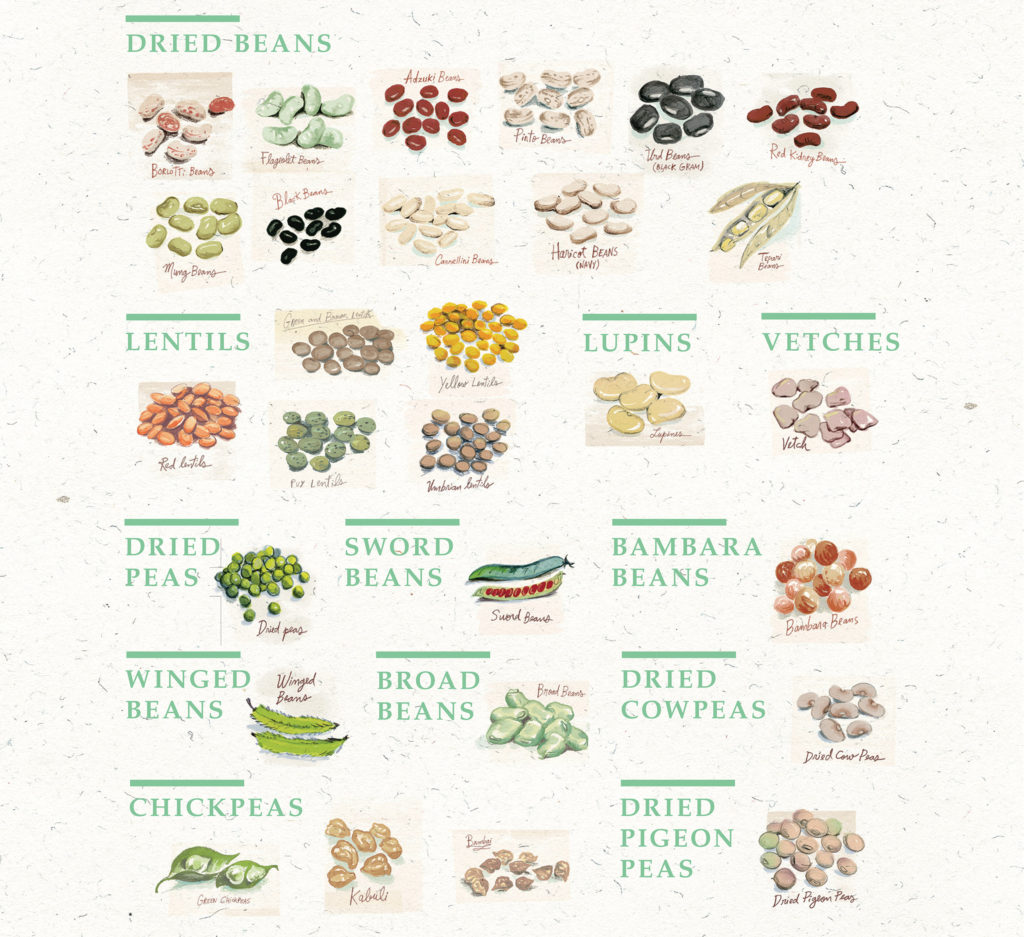Since 2016 was dubbed the year of pulses by the United Nations, it was a logical choice to include pulses in Food for the Future. Thanks to their many qualities, pulses are very relevant in terms of the future challenges for our food system.
First and foremost, pulses are healthy and nutritious: they are rich in protein, fibres, vitamins, minerals and amino acids, but poor in saturated fat and trans fat. Because they are affordable, they are an important basic food for poorer consumers in developing countries.
Recent studies have shown that the daily consumption of pulses can prevent typical Western lifestyle diseases, such as diabetes, cardiovascular diseases and colon cancer.
The high protein level ensures that pulses are a good and affordable substitute for meat, which is an important benefit in both the North and the South.
Pulses are dried and, as such, have a long expiration date without losing any nutritional value. This also allows for substantial flexibility between harvest and consumption and can, thus, contribute to food security in poor regions.
Cultivation is environmentally and climate friendly: pulses are part of the leguminous plant group. They have the unique quality of absorbing nitrogen from the air and binding it in the soil. This makes them very suitable for crop rotation systems because they feed the soil, which reduces the need for fertilisation. .
Many pulses are drought resistant, which makes them very well-suited for dry regions. Poor communities living in dry regions often have to deal with food insecurity. Legumes, adjusted to the local conditions, are an ideal addition here. The low production costs give the farmer a healthy margin for profit for legumes.
RED KIDNEY BEANS from Tanzania
Red kidney beans are one of the most popular types of pulses in Europe. However, European farmers do not grow this type, which means Europe strongly depends on the import of red kidney beans. The project Food for the Future views this as an opportunity to meet this demand in a sustainable way.
Tanzania is in the top 10 global primary producers of legumes. Pulses are an important part of the daily diet there, especially for poor consumers.

Food for the Future desires the creation of a sustainable chain in which a simultaneous contribution is made to the development of local and international sales markets and the improvement of products in Tanzania. Tanzania produces different kinds of kidney beans and the production is done mainly by small-scale farmers; usually women. Part of the production is consumed, the surplus is sold. At the moment, productivity is low and the infrastructure for processing the product generally does not provide sufficient high-quality products for the European market, which is detrimental to export rates.
The partners of Food for the Future have made it their goal to, on the one hand, increase the productivity and quality of the product and, on the other hand, make improving access to the products on the local market a priority. On top of this, the partners wish to contribute to innovation in terms of production and processing methods for the improvement of the quality and access to international markets. All of this will eventually contribute to improved incomes of Tanzanian farmers.
The partners will look for ecological, economic and social innovation over the course of the entire process. This could be innovation in the supply chain (production, postharvest, transport, processing, etc.), but it could also concern the end product. A chain analysis will point out any bottlenecks and points for improvement.
Sources:
BTC. (2012). Organic Kidney Beans: Potential for certified producers in Tanzania. BTC, Belgian Development Agency.
FAO. (2016). Opgehaald van 2016: International Year of Pulses: http://www.fao.org/pulses-2016/en/
Siddiq, M., & Uebersax, M. (2013). Dry Beans and Pulses Production, Processing and Nutrition. Wiley-Blackwell.


